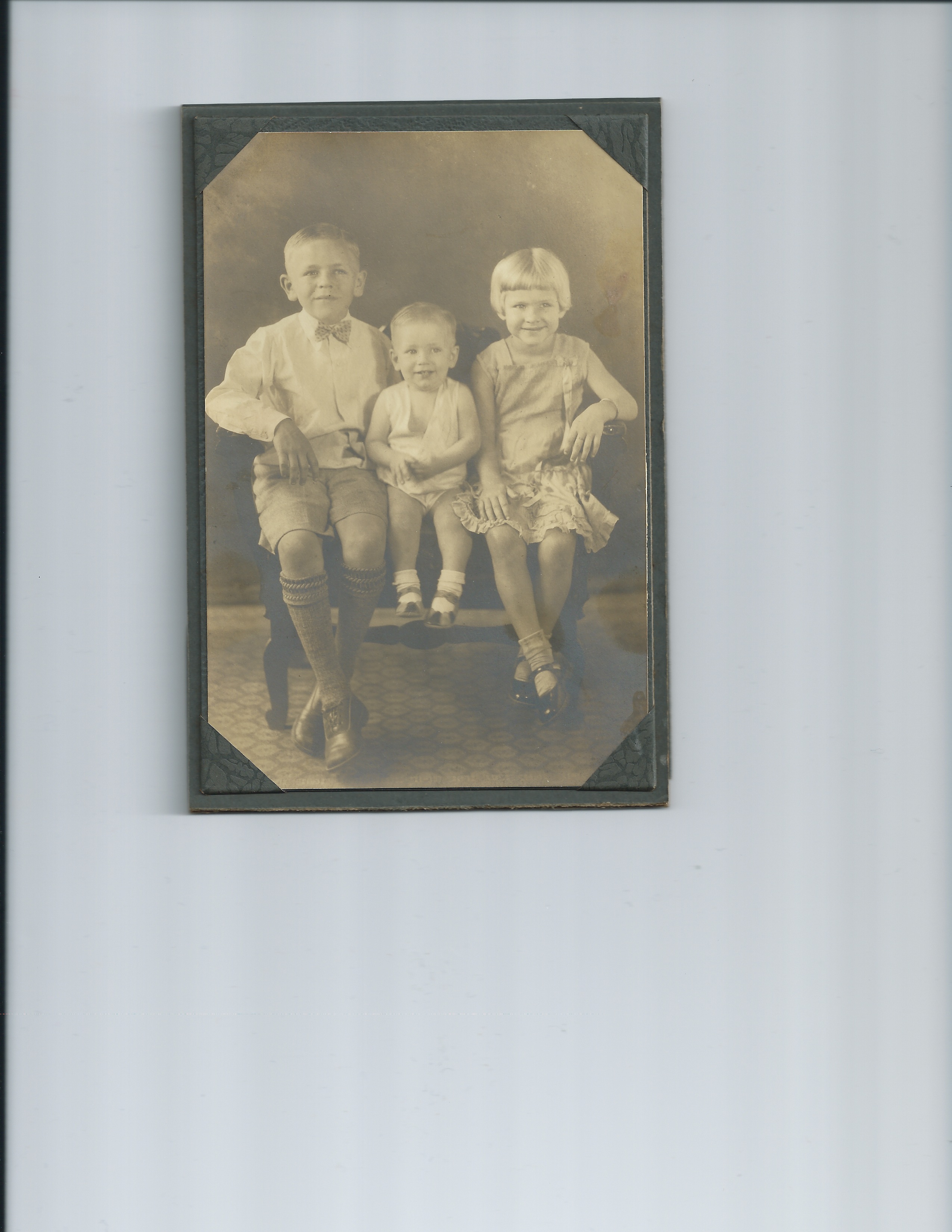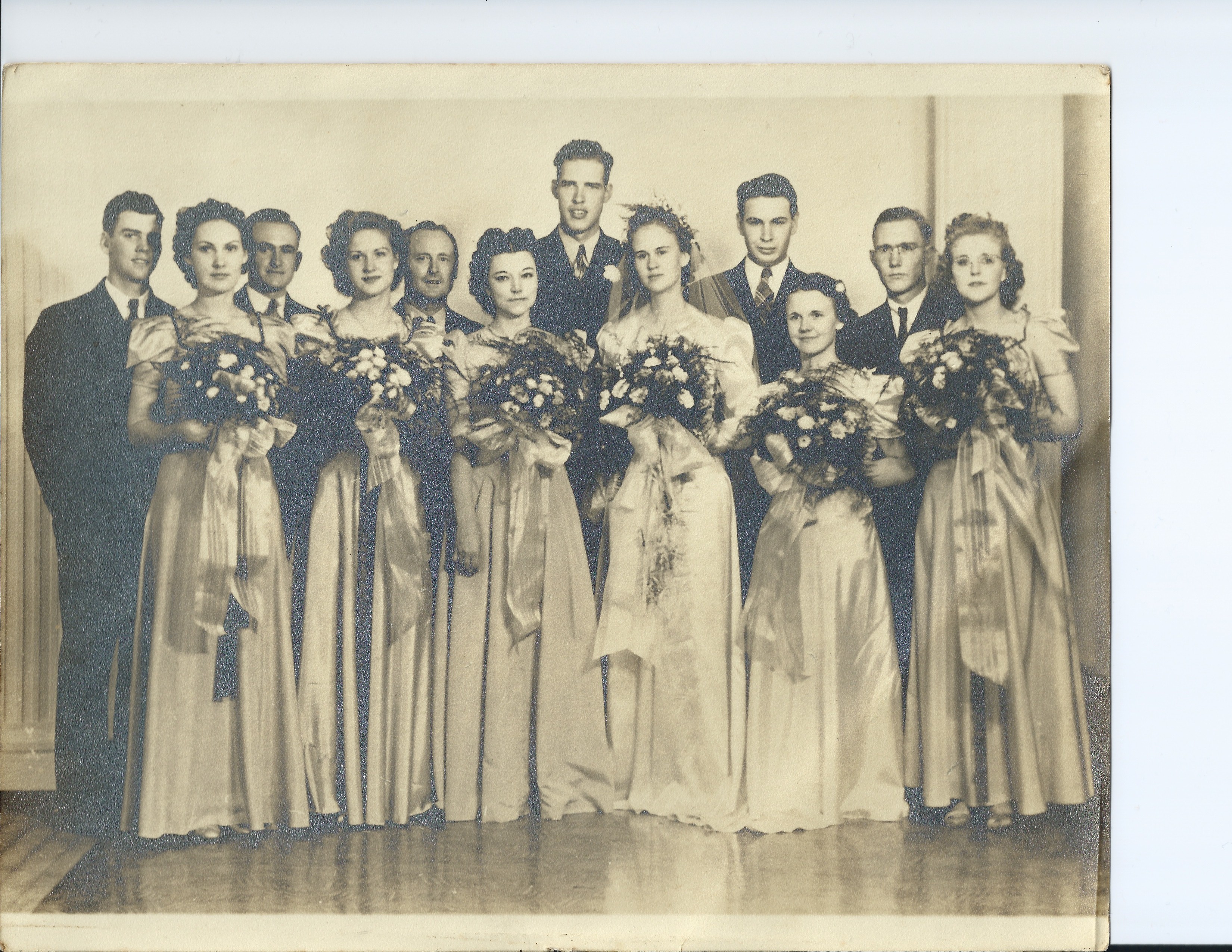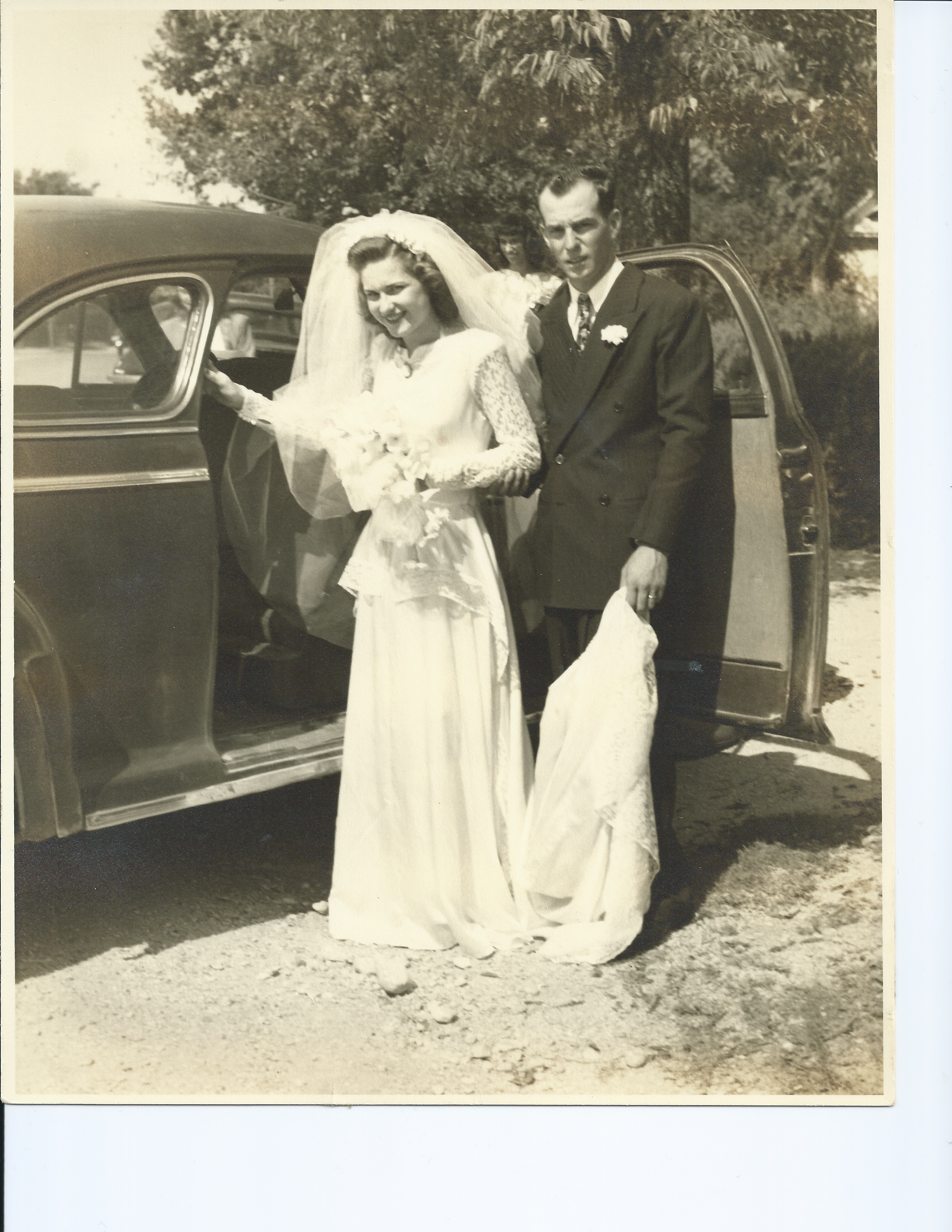TRANSCRIPTION
As a young girl, what kind of dreams did you have for yourself?
I always wanted to be a school teacher, get married, and have children, that was my dream and it came true.
What was your inspiration for wanting to teach?
From the time I was old enough to talk, my mother said I was always trying to teach everybody, "let me show you how" was my favorite phrase. So I grew up knowing that was what I wanted to do.
What was your home life like with your siblings, and how many siblings did you have?
I had a brother that was four years older than I was, and a young brother that was four years younger than I was. My older brother was very protective of me, but my younger brother would get me on anything he could, until he got older and decided he loved me.

Did your mother sew your clothing or did you go to department stores?
No. We had a lady in Uhland that would sew a dress for me for .25 cents. That was the only thing my mother could not do was sew. So when I was 11 years old and expressed a desire to sew, you could buy 10 yards of material for a dollar, so she bought several stacks, and I would get patterns, and if I would cut up the whole 10 yards for one dress that was all right with her, just so I would learn. (Meme discusses others who helped teach her how to sew.) One time I made mother a dress that had figures, and how I didn't notice or not but I had all the figures upside down. Only a few people noticed it. The dress she was buried in I had made her for mother's day. She thought it was the prettiest dress!
Did you have chores and responsibilities in your home?
Yes, but not many, because I was very slow. My mother was very fast. So if I was slow enough I didn't have to wash the dishes. We lived on the farm. So in the mornings everything would already be done. In the evening, I would pretend I had homework, so I wouldn't have to go out to feed the chickens. In the summer that was one of the things I had to do, and I hated it cuz chickens are messy. I had to dust the furniture and oh, churn the butter.

Did your brothers have more chores than you did being that they were boys?
No. I guess my mother sort of just spoiled all of us, in that she did a lot of things. We would help, but it wasn't that there was much stuff to do really
How were boys and girls treated in school? Were they treated in similar ways?
Yep.
Did you experience any tracking in school, based on the fact you were a female?
No.
Are there any unspoken social taboos you might remember from back then?
Well, one thing I remember, you see I had the same teacher for grade 1,2, & 3. Then I had the same teacher for 4,5, & 6. And then I just had to go to school for just 11 years. I was the last class that had to go to school for just 11 years, and there were two teachers who taught us high school courses. But there were only two people, a friend and I that were in my class. The classes were very little, but um, one thing I was gonna tell you is that we had children who lived on the farm, and had never been around much at all, and that were very shy. Especially two boys, and they had so much trouble. Because you had an outhouse to go to, and they wouldn't ask the teacher, and then there would be an accident. That happened with this one boy especially quite frequently. So I have always appreciated indoor plumbing!


How many people were in your high school class?
Just two people
Why were there just two people in your class? Was it a small town?
It was a very small town.

Since there were just two of you that made up the class, were you valedictorian?
I was and the guy said that the reason I was valedictorian was cuz he stuttered.
After graduating high school what did you do next?
Ok, that was during WWII, so and I did all the chores in those summer of 42 & 43, but I went to college at Texas Lutheran. I got a scholarship cuz I was valedictorian, it didn't' matter how many people were in your class. I went there, it was a junior college at the time, I went for two years. Then, you could get a certificate to teach. I had a principle I had had in D'Hanis and he begged me to come teach and I did. I taught 7th and 8th grade for two years that was terrible. That was where I met Papaw Willie. And then when I moved back in 47, we got married on September 1st of 47'.
Was going to college a goal of yours growing up? Did you know you would be going? Were there any factors that influenced it?
Yes. Well I knew if I wanted to be a teacher I had to go to college. And uh, actually my parents were very, they didn't have money. But they scrapped together the money and paid my tuition and room and board for the month, and with my scholarship it was something they were able to do. My older brother had a full scholarship to Texas A&M, and by full scholarship, books and everything because he was such a good baseball catcher, and they wanted him to come. But he ended up going to go to work for a person that my dad knew and then he was drafted, not really, he joined the air force. (Meme continued to discuss her younger brother's career in the service as well.)
Did you have any women that were influential role models growing up that influenced your career?
Um ya. I had this real good friend in Uhland were I lived and she also taught school and also went to Texas Lutheran. And uh she stayed a role model for me until she got sick. I mean she was just that type of person.
What did you admire about her?
I liked the way she dressed! And I liked just her personality and how nice she was to people.
Did your mother work outside the home?
No.
What type of jobs was available for women?
We had a Gary Air Force Base out of San Marcos, and you could go and work there. That would have been a place to earn some money. But my dad wouldn't let me work there, too many boys. (Meme discussed why her dad sent her to college; all the boys were gone in service.)
Did you have any part time jobs before teaching?
No. See living on the farm um, well during the summer, our mother would weigh the cotton when the pickers came in and I stayed home and ironed the clothes or cleaned up. But other than that there were no part time jobs.
Did you ever pick cotton?
One day. My dad decided any girl who grew up on the cotton farm needed to learn how to pick cotton. So 5:30 I went to the field and at 12:00 they weighed my cotton, and I had picked two rows and I had 25 lbs. But they would laugh, they would take people who came to visit us, to look and there was not a white bulb of cotton left in those two rows, I picked everyone, it was hilarious! But after that my dad said maybe Rose Marie should stay at home and iron clothes.
What was the average weight of cotton for a good picker?
500 lbs. By noon if you were a good picker you would have at least 300 lbs. cuz it weighed more in the morning.
Was the cotton farm your family's main source of income?
No. My dad was a cotton gin manager that was where he got a salary every month. At that time he made $100 a month and that was a lot of money, it went a far way.
What was your starting salary as a teacher?
A $100 a month. When I retired I was making $32,000 a year, so that was quite an increase. I stopped working for 13 years. Then once the youngest was in kinder, I went to work for the welfare as a field worker for 4 years. Then I went back to school for 12 months to get my degree. But I lacked 8 hours but they hired me anyway. That summer I got the rest of the hours. In September my salary doubled by having a degree. At that time you could teach without a degree, but it was worth it.

Was your husband supportive of you pursuing your education?
Yes. That to him was the way he could buy me insurance. If I got my degree and I could teach school, if something happened to him, I would be able to make a living for us. Back then you could. In fact we lived off my salary and saved Papaw Willie's.
What kind of advice would you share with your daughter Mary?
What I did in all the children's lives was to encourage them to work hard. Whatever you did to do it the best you know how. (Meme talks bout how Mary has worked hard.) I feel that it is necessary if at all possible for you to have a career, so if something happens in your family you have something to fall back on. That was my mother's wish. My mother only went to school through the 3rd grade, but she self taught herself. But her wish for us was that we would get all the education we could.
Did your father see the same importance on education?
Well, he was not as much on education as my mother, but if you would have known my mother and dad, how my mother felt, that was how my dad felt. He, until the day she died, he was such a loving, he loved my mother. So, that fact, that was how she felt he was fine with it.
Did you feel you or your daughter face any challenges or segregation towards women growing up?
No. I took lessons from my mother. She had a way of working, well she had a way of getting my dad to agree with her, so that's what helped me a lot.
Did your female friends or family have the same opportunities as you?
Well, a lot of them didn't have the opportunity that I had. In fact on my mothers' side, I think I am right, that I'm the only first cousin who went to college and got a degree. Many of the others didn't really care to go, I don't know. I never thought of it as segregating but I guess it was. On my dad's side I have several cousins who are younger than me who got their degree. (Meme discusses how lucky she feels for having lots of nice things happen to her.)
What is one of your fondest memories you still hold dear to your heart?
I guess my fondest memory is the day we got married. It was such a hot day and I never even felt. It was such a dream come true, and then when I had my children.
Is there anything else you would like to add to this interview?
We moved out to the farm when I was five years old. So I turned six in May and started in school. My older brother and I rode to school in a buggy. We did that until Norman was would have been about 14, and my daddy bought my grandfather's Model T, and then Norman drove us to school. I think that is something. We had no electricity when we moved to the farm, so of course you had to use kerosene lamps, and wood for the stove to heat the water and everything, to keep you warm. When we went to ball games, at night when it was so cold when we got home my mother would of heated bricks and put them under our covers to keep us warm. We got electricity in 1936 and moved to the farm in 31'.

